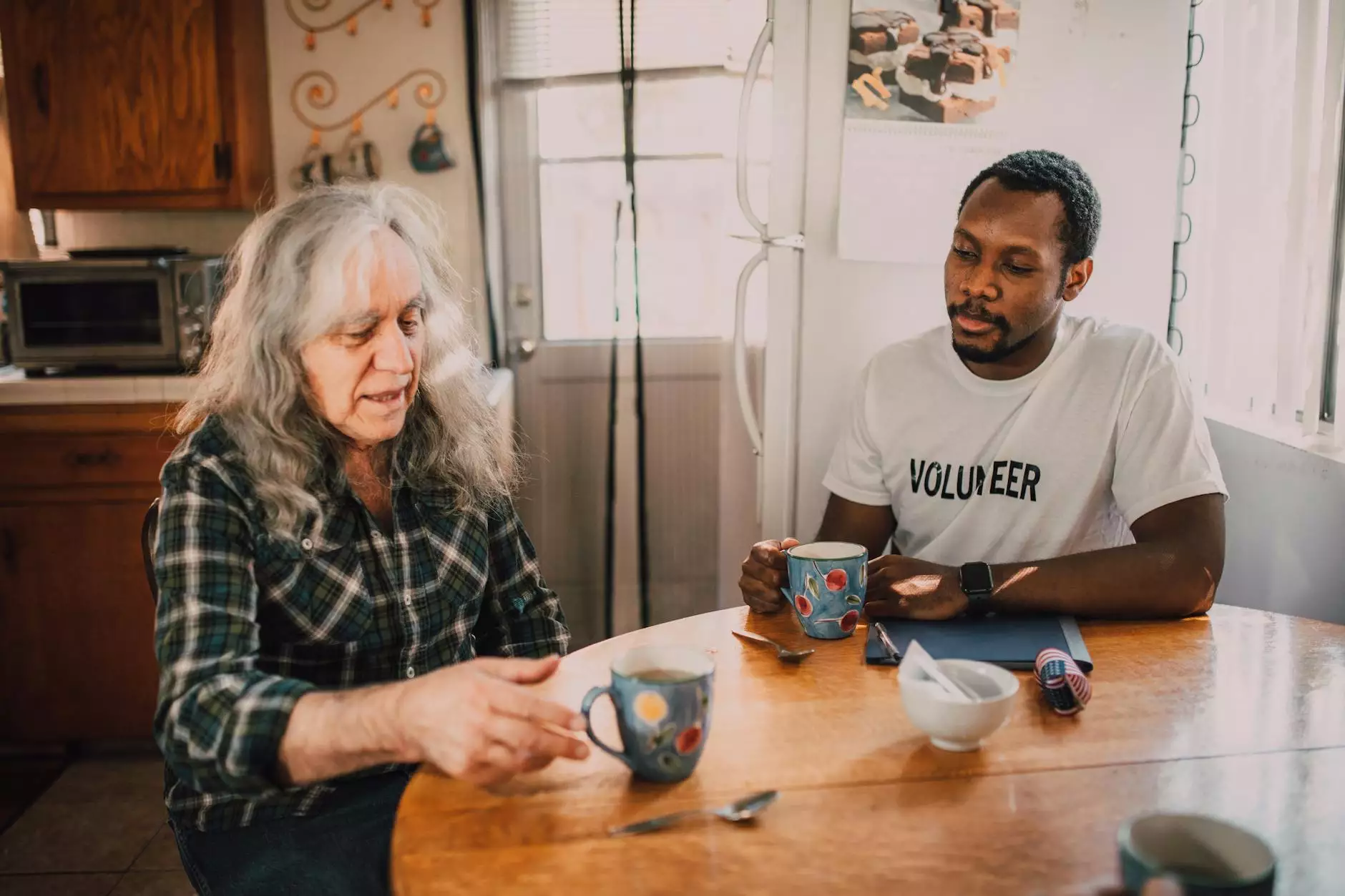The Importance of a **Team Building Training Course in the UK**

In today's fast-paced business environment, organizations are recognizing the importance of investing in their teams. A team building training course in the UK provides the opportunity for employees to develop better communication, improve collaboration, and foster a cohesive work culture. But, what exactly does a team building course entail, and why is it crucial for modern businesses? This article delves into the myriad benefits and components of effective team building training, showcasing how it can take your organization to the next level.
What is a Team Building Training Course?
A team building training course is designed to enhance the skills, cooperation, and collegiality of employees within an organization. Through a series of carefully structured activities, workshops, and discussions, participants engage in experiences that promote teamwork and help develop essential interpersonal skills. These programs can vary significantly in length, structure, and focus, but they all share the common goal of enhancing team effectiveness.
Why Invest in Team Building?
The benefits of investing in team building training courses cannot be overstated. Here are several compelling reasons:
- Improved Communication: Team building programs foster an environment where team members can express their ideas freely. Enhanced communication leads to the sharing of innovative ideas and problem-solving strategies.
- Increased Productivity: Strong teams work more efficiently. When team members understand each other's strengths and weaknesses, they can delegate tasks more effectively.
- Enhanced Employee Engagement: Engaging in team-building activities helps employees feel more connected to their organization, increasing overall morale and job satisfaction.
- Conflict Resolution Skills: Courses often tackle sensitive issues and teach employees how to resolve conflicts professionally, which is essential for maintaining a positive work environment.
- Stronger Team Dynamics: By building trust and rapport, team members can work together more effectively, creating a more harmonious and productive workplace.
Key Components of an Effective Team Building Training Course
An effective team building training course encompasses several key components that cater to the needs of modern teams. Below are some of the critical elements:
1. Interactive Workshops
Workshops are an integral part of any team building training course. They provide a platform for team members to interact, learn, and collaborate on various tasks. Activities may include experiential learning exercises that emphasize problem-solving and critical thinking. For example, scenarios involving simulated challenges can highlight the importance of strategic planning and teamwork.
2. Outdoor Activities
Many successful team building courses incorporate outdoor activities as a way to break down barriers and encourage participation. Activities like obstacle courses, treasure hunts, or adventure challenges promote teamwork in a fun and exhilarating way. Not only do these activities boost morale, but they also help build a resilient team spirit.
3. Group Discussions
Group discussions allow team members to express their thoughts and share their experiences. Facilitated by a skilled trainer, these discussions can address team challenges, explore individual roles within the team, and highlight areas for improvement. The focus on open dialogue can significantly enhance the collaborative efforts of the team.
4. Individual and Team Assessments
Assessments are a powerful tool in team building. They help identify the strengths and weaknesses of both individuals and the team as a whole. By analyzing these assessment results, organizations can tailor their training approach to meet specific needs, ensuring greater effectiveness in the training provided.
5. Feedback Mechanisms
Feedback is critical in any learning environment. A well-structured team building training course will include mechanisms for participants to share their thoughts on what they learned and how they can apply these lessons in their work. Facilitators can use this feedback to improve future courses and address any ongoing issues within the team dynamics.
The Role of the Trainer in Team Building
The effectiveness of a team building training course in the UK largely depends on the expertise of the trainer. A skilled trainer brings experience, insight, and a neutral perspective to the process, enabling them to mediate discussions and facilitate activities effectively. Here are some qualities that make a great team building trainer:
- Knowledgeable: The trainer should possess a deep understanding of group dynamics and team behavior.
- Engaging: An effective trainer uses engaging techniques to keep participants involved and enthusiastic.
- Empathetic: The ability to understand team members’ emotions and concerns is crucial for guiding discussions.
- Adaptable: A successful trainer can adjust activities based on the team's needs and dynamics.
- Experienced: Real-world experience in various business environments enhances a trainer’s credibility.
The Long-Term Benefits of Team Building
Investing in a team building training course in the UK yields long-term benefits that can significantly impact an organization’s performance and culture. Here are some of the advantages organizations can expect:
1. Increased Retention Rates
Teams that engage in regular team-building exercises often report higher retention rates among employees. When individuals feel valued and connected to their colleagues, they are more likely to remain loyal to the organization.
2. Agility and Flexibility
Cross-trained teams can respond more quickly to changes in the marketplace or internal challenges. A strong focus on team building encourages skill diversification within the group, leading to increased adaptability.
3. Proactive Problem Solving
Teams with strong relationships are more likely to engage in proactive problem-solving. A team building training course instills critical thinking and innovative approaches to common challenges, thus reducing downtime caused by unresolved conflicts.
Choosing the Right Team Building Training Course
Selecting the ideal team building training course in the UK requires careful consideration of your organization’s needs and the specific goals you wish to achieve. Here are some steps to help guide your decision:
- Identify Specific Goals: Consider what your team needs most. Is it better communication, improved collaboration, or conflict resolution?
- Research Providers: Look for reputable providers with positive testimonials. Check if they specialize in areas that align with your goals.
- Evaluate Course Content: Ensure that the course content meets your expectations and covers the essential components for effective team building.
- Consider Logistics: Think about the course duration, location, and cost. Make sure these factors align with your organizational budget and schedule.
- Solicit Feedback: After conducting a course, gather feedback from participants to continually refine your approach to team building.
Conclusion
A well-structured team building training course in the UK can be a game changer for organizations looking to optimize their teams’ performance. From fostering communication to enhancing overall morale, the benefits are undeniable. By investing in such programs, organizations position themselves for both immediate improvements and long-term success. Don’t wait for problems to arise; strengthen your team today and pave the way for a more harmonious and productive business environment.
For organizations ready to embark on their team-building journey, Call of the Wild offers tailored courses designed to meet your unique needs. With a focus on active participation and practical outcomes, our programs are crafted to empower your team and unlock their potential.
Contact Us Today!
Are you ready to transform your team? Contact Call of the Wild for more information about our team building training courses in the UK and how we can help your organization thrive!
team building training course uk








